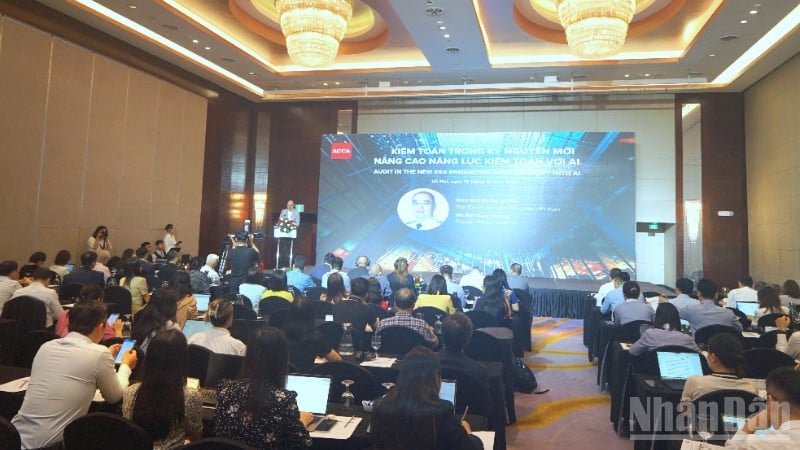
Strategic cooperation to promote modern public audit
On October 13, in Hanoi , the State Audit Office coordinated with the Association of Chartered Certified Accountants (ACCA) to organize an international dialogue with the theme "Auditing in the new era - Enhancing auditing capacity with AI".
The dialogue brought together more than 100 delegates who are senior leaders from the State Audit, the State Bank of Vietnam , the Hanoi People's Committee, along with representatives of international auditing organizations, commercial banks, technology experts, lecturers and researchers in the field of public finance.
The year 2025 marks a period of extensive cooperation between the State Audit and ACCA, with a series of outstanding activities such as: AI Workshop held in May, training courses for public auditors, and professional knowledge update program for banking personnel. These initiatives not only contribute to improving professional capacity but also promote the integration of Vietnamese public audit with global standards.
The event aims to promote in-depth dialogue on the role of technology, especially artificial intelligence, in improving the effectiveness of public audit and modern public financial management, and is also an opportunity to affirm the cooperative relationship between the State Audit of Vietnam and ACCA as a strategic pillar in enhancing public audit capacity, promoting transparency and accountability in the digital age.
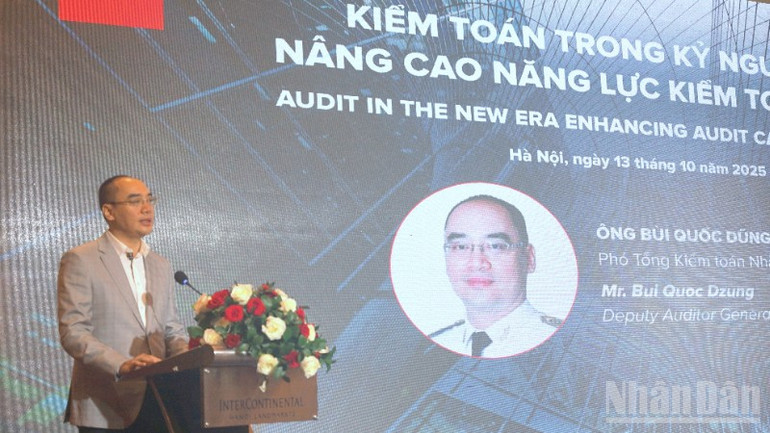
Speaking at the opening of the dialogue, Mr. Bui Quoc Dung, Deputy State Auditor General, affirmed that artificial intelligence is fundamentally changing the way the auditing industry operates, with diverse applications of AI such as helping to automatically scan and analyze all transaction data, accurately detect abnormalities and support risk assessment.
Mr. Dung said that the State Audit has begun implementing initiatives to apply AI in thematic audits of public investment, using advanced data analysis software, and testing smart audit sample selection tools.
According to Mr. Dung, initial results show that applying AI in thematic audits has helped detect 15% of improper expenditures that are difficult to detect through manual audits.
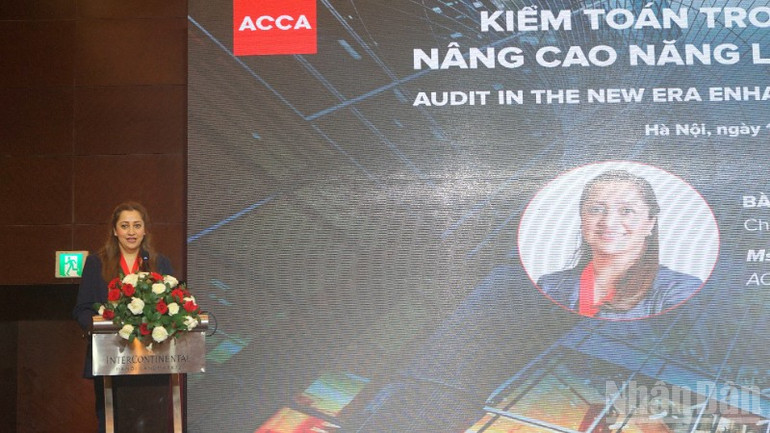
Ms. Ayla Majid, ACCA Global Chair, emphasized that AI is reshaping the way auditing is done, not replacing the role of auditors. Therefore, in addition to investing in human capacity in parallel with technology, it is necessary to equip public finance professionals with tools to understand the capabilities and limitations of AI, apply ethical thinking and cross-disciplinary cooperation.
Ayla Majid shared that ACCA has redesigned its global career training program launched in June this year, to prepare finance professionals to face the complex challenges of the changing modern world - from economic volatility, climate change to geopolitical conflict.
AI - a long-term driver of change
Thematic discussions at the workshop brought multi-dimensional and practical perspectives from leading financial, auditing and technology organizations on: Trends in integrating AI into business and auditing strategies in Vietnam; responsible AI governance in the finance-banking sector; challenges in infrastructure, security and digital ethics; practical AI deployment models at large auditing organizations.
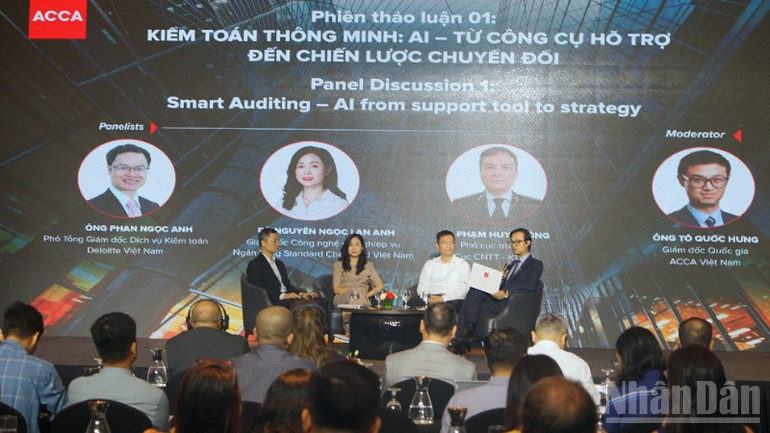
Experts and speakers discussed how to deploy AI effectively, comply with regulations and ensure transparency, especially in a multinational operating environment.
Accordingly, experts believe that artificial intelligence is not just a temporary trend, but is becoming a fundamental factor, having a profound and long-term impact on all professions, including the fields of auditing, accounting and finance-banking.
Mr. Phan Ngoc Anh, Deputy General Director of Audit Services, Deloitte Vietnam, emphasized that the application of AI is entering the operating methods of organizations and businesses, creating fundamental changes in processes, organizational structure and operating models.
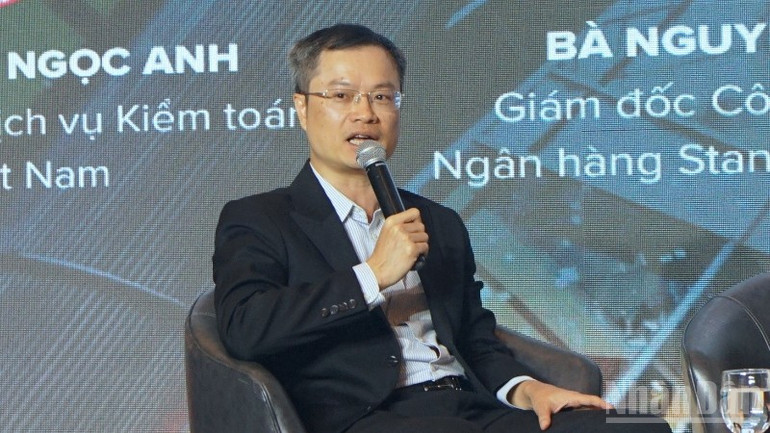
“AI is not a short-term trend, but a long-term future for all industries, not just the auditing and accounting industries. From ChatGPT to other AI tools, widespread application is leading to comprehensive digital transformation not only at the data level but also at the organizational and process level. When businesses apply digital transformation and AI, some departments will disappear, new departments will be born; smart factories, financial consulting systems or production processes will all change completely,” said Mr. Phan Ngoc Anh.
Sharing the same view, Ms. Nguyen Ngoc Lan Anh, Director of Technology and Operations, Standard Chartered Bank Vietnam, said that the application of AI in production and business activities in general is not only a trend, but is also contributing to changing production and business activities.
“In the Asia-Pacific region, many countries have applied AI early. In the finance-banking sector, AI has great potential, opening up the possibility of personalizing customer service, innovating products, and improving business efficiency,” said Ms. Lan Anh.
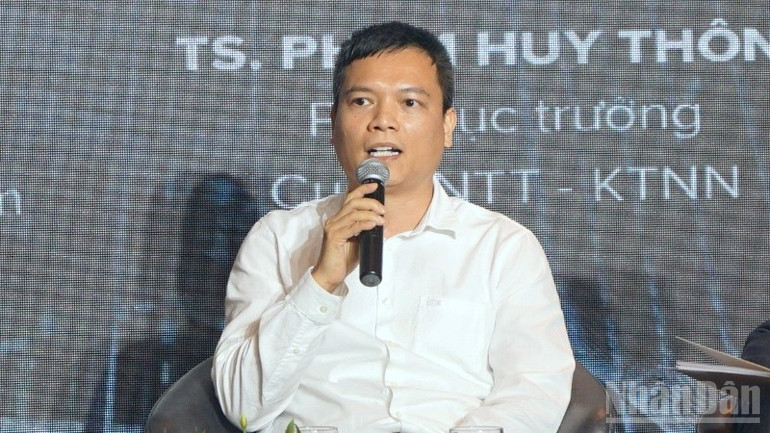
Meanwhile, Dr. Pham Huy Thong, Deputy Director of the Department of Information Technology - State Audit, stated that the implementation of AI in the auditing field currently faces three main challenges: Unsynchronized technology infrastructure, limited security and data sharing between agencies, along with a shortage of high-quality human resources.
To address these challenges, the State Audit has submitted a project to apply big data and AI in auditing activities for the 2026 period, focusing on investing heavily in server infrastructure, security and data connection to meet the deployment of AI in the State Audit system, said Mr. Pham Huy Thong.
According to Dr. Thong, in the context of the global "AI explosion" from 2024, the State Audit has quickly adjusted its strategy, accelerating the application of artificial intelligence in professional activities. By April 2025, the Department of Information Technology reported to the State Audit to allow the first pilot product to be put into operation, marking a new step in the digital transformation process of the entire industry.
Experts agree that AI implementation is not just a technical issue, but also a governance, ethics and accountability issue. Public-private partnership models, such as the one between the State Audit and ACCA, are considered key to improving the capacity to audit large projects, optimize resources and ensure transparency in public investment.
Source: https://nhandan.vn/ung-dung-ai-nang-cao-nang-luc-kiem-toan-post915015.html


![[Photo] Solemn opening of the 1st Government Party Congress](https://vphoto.vietnam.vn/thumb/1200x675/vietnam/resource/IMAGE/2025/10/13/1760337945186_ndo_br_img-0787-jpg.webp)





![[INFOGRAPHIC] Birds follow storms to find food](https://vphoto.vietnam.vn/thumb/402x226/vietnam/resource/IMAGE/2025/10/13/1760345532978_thumb-chim-hai-au-jpg.webp)















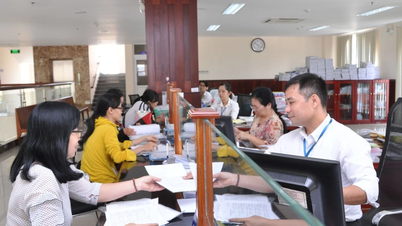
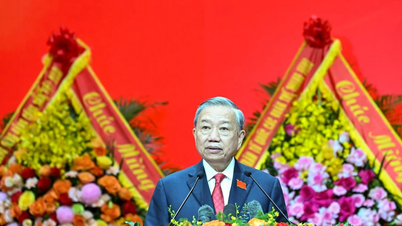
![[Video] Clarifying the concept of "basic level of hospital fee exemption" in the draft health policy](https://vphoto.vietnam.vn/thumb/402x226/vietnam/resource/IMAGE/2025/10/13/1760342539316_1760323741195-jpg.webp)
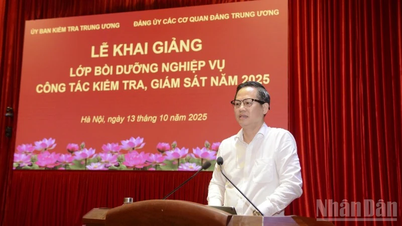
![[Photo] General Secretary To Lam attends the opening of the 1st Government Party Congress](https://vphoto.vietnam.vn/thumb/1200x675/vietnam/resource/IMAGE/2025/10/13/1760321055249_ndo_br_cover-9284-jpg.webp)


























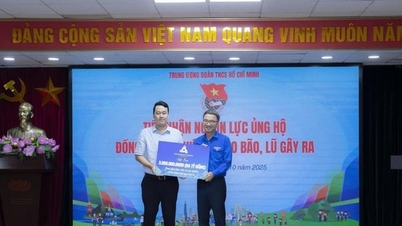

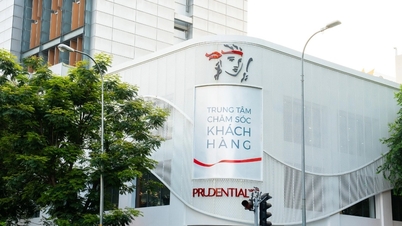
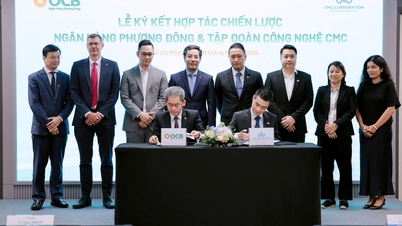

















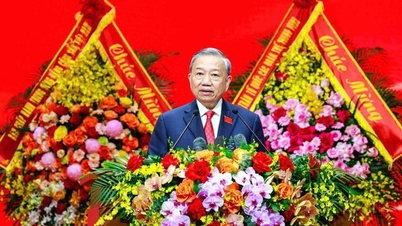

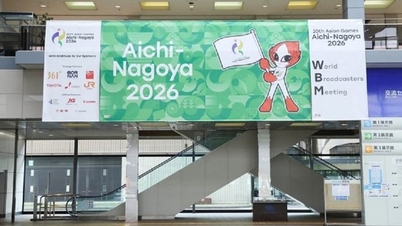


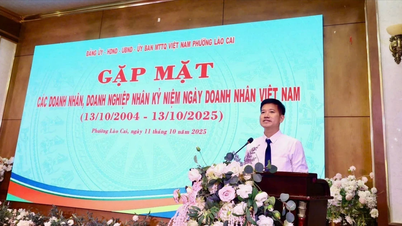





















Comment (0)